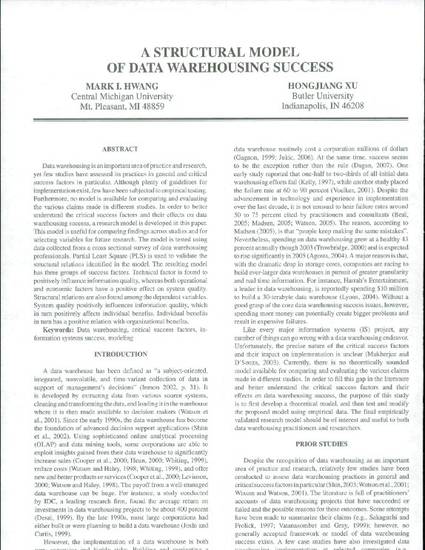
Data warehousing is an important area of practice and research, yet few studies have assessed its practices in general and critical success factors in particular. Although plenty of guidelines for implementation exist, few have been subjected to empirical testing. Furthermore, no model is available for comparing and evaluating the various claims made in different studies. In order to better understand the critical success factors and their effects on data warehousing success, a research model is developed in this paper. This model is useful for comparing findings across studies and for selecting variables for future research. The model is tested using data collected from a cross sectional survey of data warehousing professionals. Partial Least Square (PLS) is used to validate the structural relations identified in the model. The resulting model has three groups of success factors. Technical factor is found to positively influence information quality, whereas both operational and economic factors have a positive effect on system quality. Structural relations are also found among the dependent variables. System quality positively influences information quality, which in turn positively affects individual benefits. Individual benefits in turn has a positive relation with organizational benefits.
This article was archived with permission from International Association for Computer Information Systems, all rights reserved. Document also available from Journal of Computer Information Systems.
Available at: http://works.bepress.com/hongjiang_xu1/2/
